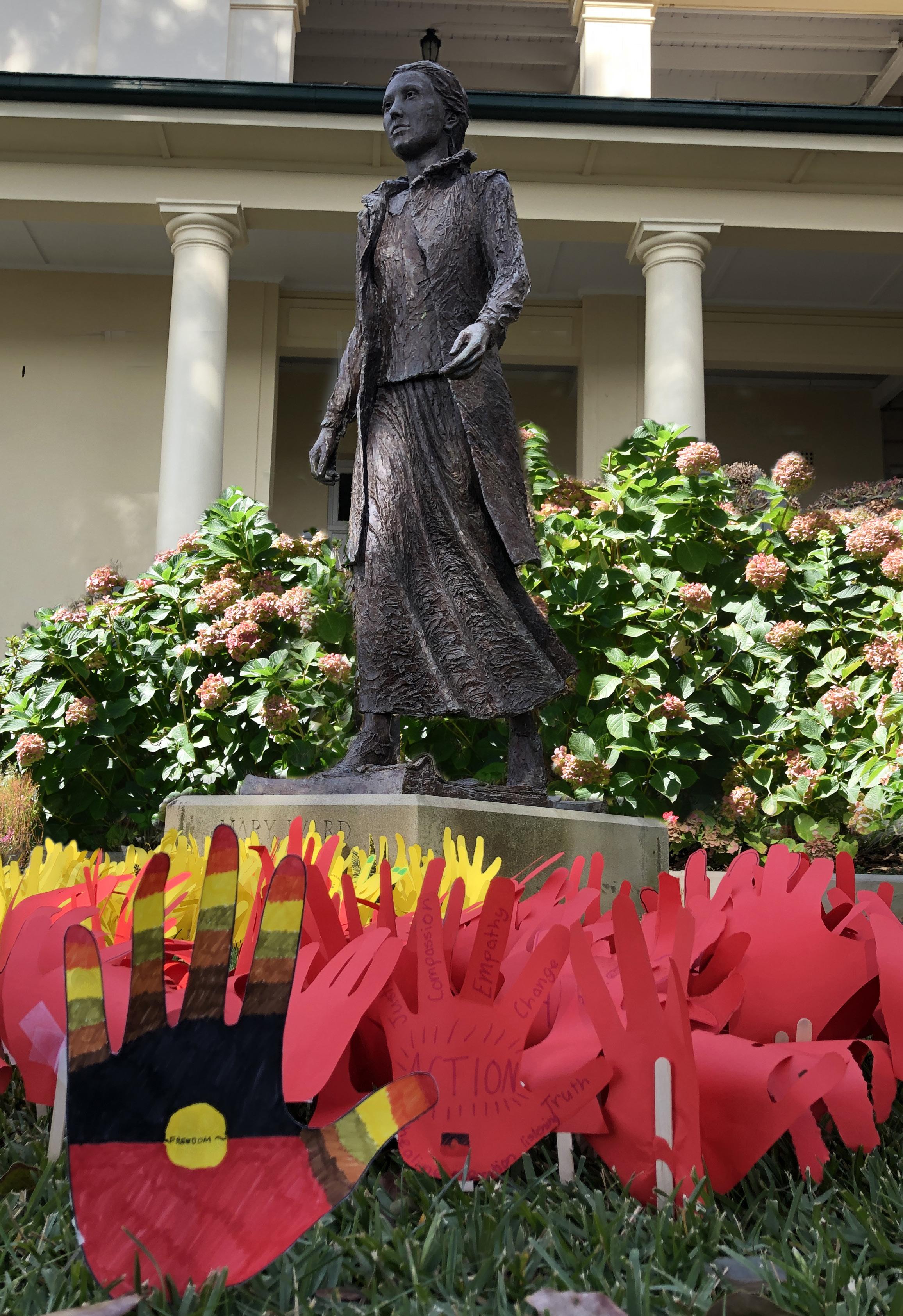
LORETO KIRRIBILLI
SOCIAL JUSTICE PROGRAM
This is our vision: that Loreto Schools offer a Catholic education which liberates, empowers and motivates students to use their individual gifts with confidence, creativity and generosity in loving and responsible service.
This is our rationale: It was Mary Ward’s desire, like that of Jesus, to be at the service for those who are left out, the ostracised, isolated or thought to be unimportant. It is these people living on the margins of our society that Mary Ward chose to be with and it is these same people that the Loreto Community is challenged to stand with and for today in the church's “preferential option for the poor”. Our Ignatian tradition calls us to enter into solidarity with the poor, the marginalised, and the voiceless to enable their participation in the processes that shape the society in which we all live and work. They in turn teach us about our own poverty as no document can. Positive psychology supports us in developing strategies that lead us to consider our meaning and purpose in life. Living the Loreto values authentically and using our strengths in the service of others not only benefits the individual and community but helps to build the Kingdom of God.
Gather for yourself in your youth a great treasure of virtues and good habits.
Mary Ward
Loreto Schools of Australia Mission Statement (2010)
VALUES
We hold the strong belief that the intangibles really matter: Verity, Felicity, Freedom of Spirit, Justice and Sincerity. We nurture these values in students to help them develop into mature, well-educated, socially responsible women. These core values draw on the Ignatian spirituality of foundress, Mary Ward, whose mission was built on the Gospels.
VERITY The Search for Truth
This is verity - to do what we have to do well. Mary Ward
For Mary Ward, verity meant integrity and truth, particularly the profound truth of who we are and what gives meaning to our lives, a truth that centres fundamentally on the mystery of God. Students are inspired to invest their everyday lives with value, freedom and responsibility.
Love verity, seek knowledge, not for themselves but for the end they bring you to which is God, then you will be happy and able to profit yourself and others. Mary Ward
FELICITY Joy and Celebration
A cheerful mind, a good understanding and a great desire after virtue are necessary, but of all these a cheerful mind is the most so. Mary Ward
Felicity is an attitude of mind, a disposition of heart which manifests itself in cheerfulness, good humour, joy, happiness, hope, optimism, friendliness, courtesy, positive thinking, inner peace, self-acceptance and courage. The natural gift of a Loreto Kirribilli student is her joy, and it is fundamental to the spirit of our school. With this joy come celebration, reflection and spirituality - all of which manifest themselves in a cheerful, open-minded and generous woman.
FREEDOM OF SPIRIT
Open-minded and Open-hearted Attitudes
Grant me O Lord the freedom to refer all to youfor only in your gift realised and returned are we made fully free. Mary Ward
Mary Ward's profound understanding of freedom was grounded in her sense of personal relationship with God. She believed that each one of us , in our ordinary experience of life, has access to God's loving care. This is the truth that sets us free. It is an inner freedom, accepting of self, open to others and trusting of life.
JUSTICE
Social conscience and critical awareness
Be seekers of truth and doers of justice. Mary Ward
Justice, as Mary Ward described it, involves personal integrity based on a harmonious relationship with God, with other people and with the whole of creation. It is expressed in “works of justice”, in active participation in the struggle to bring about such harmony.
Mother Gonzaga Barry was profoundly committed to the support of those in need, and she urged her students to be aware of their surroundings and the situations of those less fortunate than themselves. In this vein, Loreto Kirribilli has a long tradition of challenging social inequity wherever it is found.
SINCERITY
We should be such as we appear and appear such as we are. Mary Ward
Sincerity in our communication and relationship with others is an essential characteristic of the personal integrity Mary Ward envisaged. This quality allows students, who are faced with the many stresses of modern living, to develop strong personal relationships, celebrate without envy and respect the individual.
justice sincerity verity felicity freedom
3
OUR LORETO KIRRIBILLI
SOC I a L JUSTICE PROGRam
Social Justice Initiatives allow students to address issues of social concern by raising awareness and informing the Loreto Kirribilli Community of injustices in our world today. These initiatives may respond to the dynamic nature of war, bushfires and floods. Students respond by way of fundraising, donations, direct service and advocacy. The program is not limited to Catholic agencies. At its core, they are all about respect and responsibility.
The Social Justice program is made up of five parts and responds to the needs of the community: House Justice Projects, Religious Education, Leadership Roles, Yearly Commitments and Annual Events.
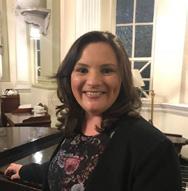






























































H OUSE JUSTICE P ROJECTS






Each Year at the beginning of Term Four, during the Student Leadership Retreat, the House Captains in collaboration with the Year 12 Student Leaders will select a charity or cause which will be the focus for the House for that year. Junior School and Senior School Leaders will engage the whole school community in awareness raising and fundraising initiatives. Every fundraising initiative will be preceded with awareness raising activities implemented by the Student Leadership body.




When choosing a charity or cause the student leaders take the direction from Loreto Justice Network focus areas. These include, but are not limited to:
Ecological Justice

Refugees and Asylum Seekers
Homelessness
First Nations Peoples
Human Trafficking
The Rights of Women and Children
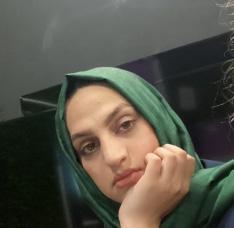
Awareness raising includes guest speakers, with the lunchtime event Social Awareness Live@lunch; class lessons; workshops; prayers and liturgies during Friday Mass and/or DEAR; circle class games and quizzes; social media posts; and visual presentations on TV screens.
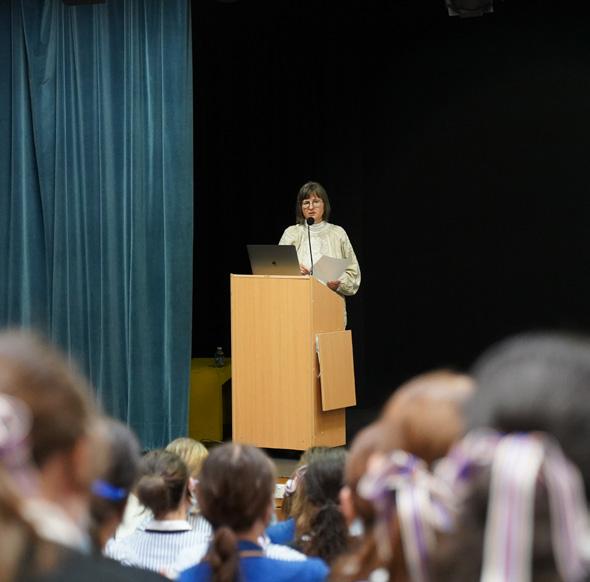
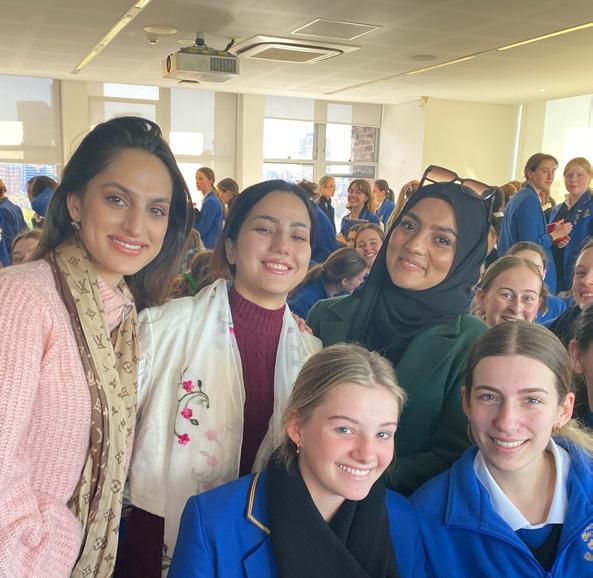
Fundraising may include games, bake sales, raffles and any other ideas approved by the Principal and/or Director of Mission and/or head of Junior School. Reflection and evaluation will proceed each initiative to gauge student level of awareness and enrichment.
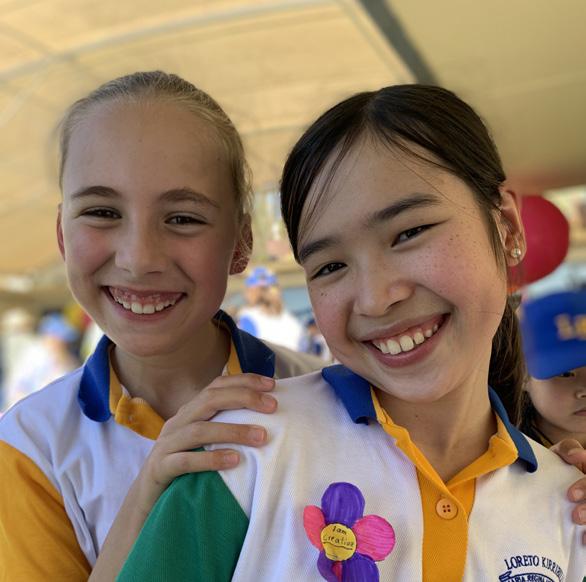
justice sincerity verity felicity freedom 4
LIVE @ LUNCH social awareness RESEARCH FELLOW IN UKRAINIAN STUDIES Dr Sonia Mycak is based at the Centre for European Studies at the ANU. She is also a director of the Ukrainian Association of Sydney.
SOCI a L JUSTICE I n ITaTI v ES
Wednesday 6 April AUDITORIUM all welcome LIVE @ LUNCH social awareness DIE OR DIE TRYING Meet Marwa and Farhat as they tell their story and answer your questions. This is the story of 15 young women and their faith in their right to education and equality. A life-or-death belief, symbolic of the struggle for self-determination that all Afghan women are now going through under the Taliban. It’s also the story of how a community far away mobilises to support a group of young women when they hear their calls, guiding them to safety against all the odds. ESCAPING THE TALIBAN all welcome Thursday 9 June LIBRARY NOT TO BE MISSED LIVE @ LUNCH social awareness HUMAN TRAFFICKING & SLAVERY Laura Vidal has been working to identify, respond and prevent human trafficking and slavery, including forced marriage for over a decade. In this talk, Laura will cover what human trafficking and slavery are, what they look like in Australia and provide some practical ideas about what governments, communities and you can do in response.
Thursday 21 July GBC all welcome NOT TO BE MISSED
Dr Sonia Mycak
Laura Vidal
Loreto Kirribilli implements the K-10 Curriculum - Sydney Catholic School Religious Education Syllabus and the Preliminary and HSC course - NSW Curriculum - Studies of Religion I and II unit courses. As a Catholic School in the Loreto tradition, the aim of Loreto Kirribilli is to educate its students from Kindergarten through to Year 12 in more than the basic curriculum. Living up to the expectations of Mary Ward, students at Loreto are offered an education with “something more”. The School is committed to the development of leadership through service.
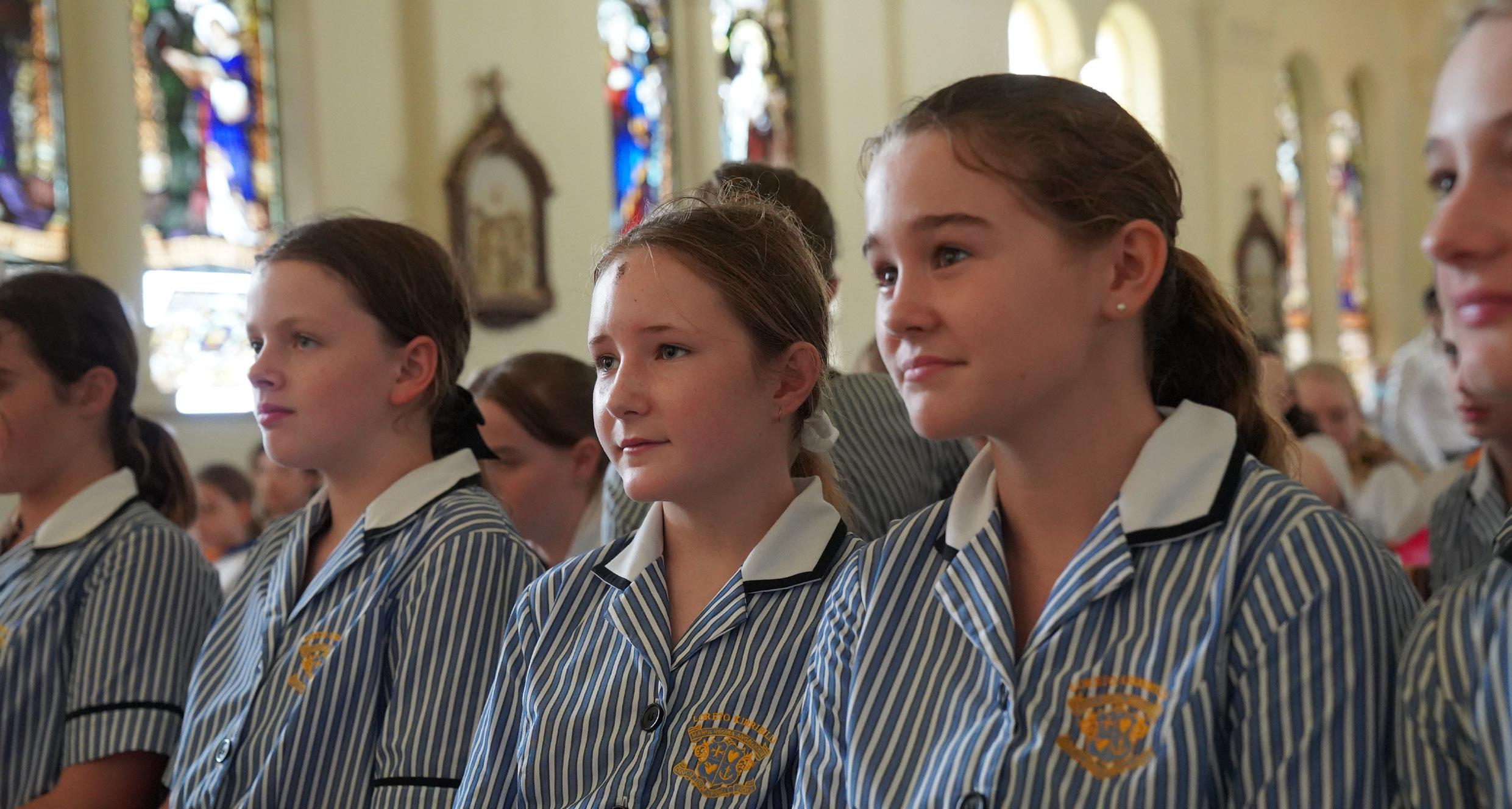
As such, social justice and experiential learning programs have prominence throughout the School year. Catholic Social Teachings and contemporary social justice issues are embedded in the Religious Education Curriculum as well as other Key Learning Areas, such as History, Geography, Design and Technology, and the Performing and Visual Arts. Thinking and Advocacy is an elective course offered to Year 9 students that harnesses the energy of young women to use their voice against injustice and seek to garner their position as leaders in society to advocate for justice issues. It is the vision that Loreto Kirribilli offers a Catholic education which liberates, empowers and motivates students to use their individual gifts with confidence, creativity and generosity in loving and responsible service.
Early Stage 1 - Kindergarten
GOD'S CREATION
Students explore the wonder and beauty of God’s creation. It presents creation as God’s gift to God’s people and a reflection of God’s goodness. Prayers of praise for creation and commitment to care for it are introduced as ways of responding to this gift. The story of Noah and the Ark is presented. It tells of the renewal of creation and God’s promise of continued blessing on the whole of creation throughout time.
Stage 1 - Year 1
CREATOR GOD
Students focus on God the creator who is present in all of creation. The first creation story is presented. The focus for this story is: God the creator, the goodness of creation and creation as a reflection of God’s love and goodness. Emphasis is then turned to the Sabbath, rest time. The unit also introduces psalms of praise as a way of expressing our praise and thanks to God.
justice sincerity verity felicity freedom
5
RELIGIOUS E d UC aTIO n
Stage 1 - Year 2
CARING FOR ALL CREATION
This unit focuses on living in right relationship with all of God’s creation. The parable of ‘The Good Samaritan’ is presented. Through it children explore Jesus’ teaching about caring for others. In the second part of the unit the interconnectedness of all creation is introduced. Children explore the beauty and wonder of creation and their responsibility towards it.
Stage 2 - Years 3 & 4
ONE WITH GOD’S CREATION
We are all created in the image of God and are called to live in harmony with our world. In this unit, students will develop a deeper understanding of God as creator, and will appreciate more fully that creation is good. We are called to be one with each other and the earth community. The unit focuses on developing an understanding of our responsibility to care for God’s creation. It also explores our decisions to respect and care for the environment which will affect our world, both now and in the future.
Stage 3 - Year 5
CREATION - A CHANGE OF HEART
This unit explores creation as a gift from God, which we are called to care for and protect. Students will identify issues of misuse and mismanagement in the environment and explore how we, as stewards of creation, can respond appropriately and compassionately.
The unit will introduce the concept of ‘ecological conversion’ which calls us to change the ways in which we relate to each other and to the whole of God’s creation. The students will identify their call to challenge those ways and structures that oppress and exploit creation.
The concept of Sabbath and the need for Sabbath time in our lives will also be explored in the unit.
Stage 3 - Year 6
THE REIGN OF GOD; REACHING OUT IN JUSTICE
This unit explores the Church’s mission to build a just world. Justice is an important element in bringing about the Reign of God. Students will explore examples of injustice and how the Church continues the mission of Jesus by working for justice. In their exploration, students will need to look at decision-making and conscience.
THE REIGN OF GOD; BREAKING DOWN THE BARRIERS
This unit explores how Jesus broke down barriers that prevented right relationships. It looks at concepts such as personal and social sin, and how our behaviour and relationships can advance or hinder the reign of God. Students will explore issues of prejudice, discrimination, rejection and acceptance, exclusion and inclusion.
justice sincerity verity felicity freedom
6
RELIGIOUS E d UC aTIO n
Stage 4 - Years 7 & 8
STEWARDS OF CREATION
Students examine our belief that God is the source of all creation, and that all human beings have been called to stewardship. Students are encouraged to explore positive ways to show care for all of God’s creation.
• Students recognise and value the sacredness of creation
• Students assess the impact of human activity on creation
• Students develop an appreciation of humanity’s responsibility for creation
AFFIRMING HUMAN DIGNITY
Scripture teaches that we are all made in the image and likeness of God. This belief informs much of the Catholic Church’s social and moral teaching and shapes our understanding of human relationships. In this unit, students are encouraged to deepen their understanding of the human person; the inherent dignity and equality of all people and Christian moral decision making.
• Students develop an appreciation of what it means to be human
• Students recognise and value the importance of ‘right relationships’
• Students develop an understanding of Christian decision making and moral reasoning
Stage 5 - Years 9 & 10
LIVING THE COMMANDMENTS AND BEATITUDES
This unit addresses foundational concepts in the study of Christian Morality. Students examine the Ten Commandments as the basis of the covenant between God and God’s people and as the foundation of Christian moral teaching. The Ten Commandments express the fundamental duties of an individual towards God and neighbour and are the basis of our present-day law. Students will also explore the Beatitudes as they present a vision for life that is radically different from the vision held by many people, both in Jesus’ time and today. In contemporary society, Jesus definition of happiness or ‘blessedness’ is counter-cultural, as living the Beatitudes brings meaning to our moral choices. The Beatitudes are our vocation as Christians, as true blessedness or happiness is only partially experienced in this life but experienced perfectly in heaven.
• Students recognise and value the ‘spirit’ of the Beatitudes and their centrality to Christian discipleship
CATHOLIC SOCIAL TEACHING
This unit grounds students in the vocation of social justice, founded in the lived example of Jesus Christ and underpinned by Scripture. It is a thread through the history of the church as it has sought to engage with the issues that have faced its people. In the modern world, these ideas have found firm ground in the formal teachings of Catholic social doctrine, which reflect on the mission of the church and calls us to respond to issues in our world today.
YEAR 10 COMMUNITY SERVICE
All Year 10 students participate in a semester of community service as part of the Religious Education course. Community Service reflects on integral aspects of the philosophy of Loreto, that with Christ as our example, we respond in action to the message of the Gospel. It is not often that our students have the opportunity to experience first-hand the range of situations, ages and economic circumstances that this program can provide. While this program can be challenging it is an important part of our Loreto learning experience.
justice sincerity verity felicity freedom
7 7
RELIGIOUS E d UC aTIO n
RELIGIOUS E d UC aTIO n
EMMAUS SERVICE MINISTRY RETREAT
Building on the semester of Community Service, Year 10 experience a week of service ministry which enables them to see more deeply the value of service as a core Catholic calling. Students engage in a range of outreach activities within the school or with an agency.
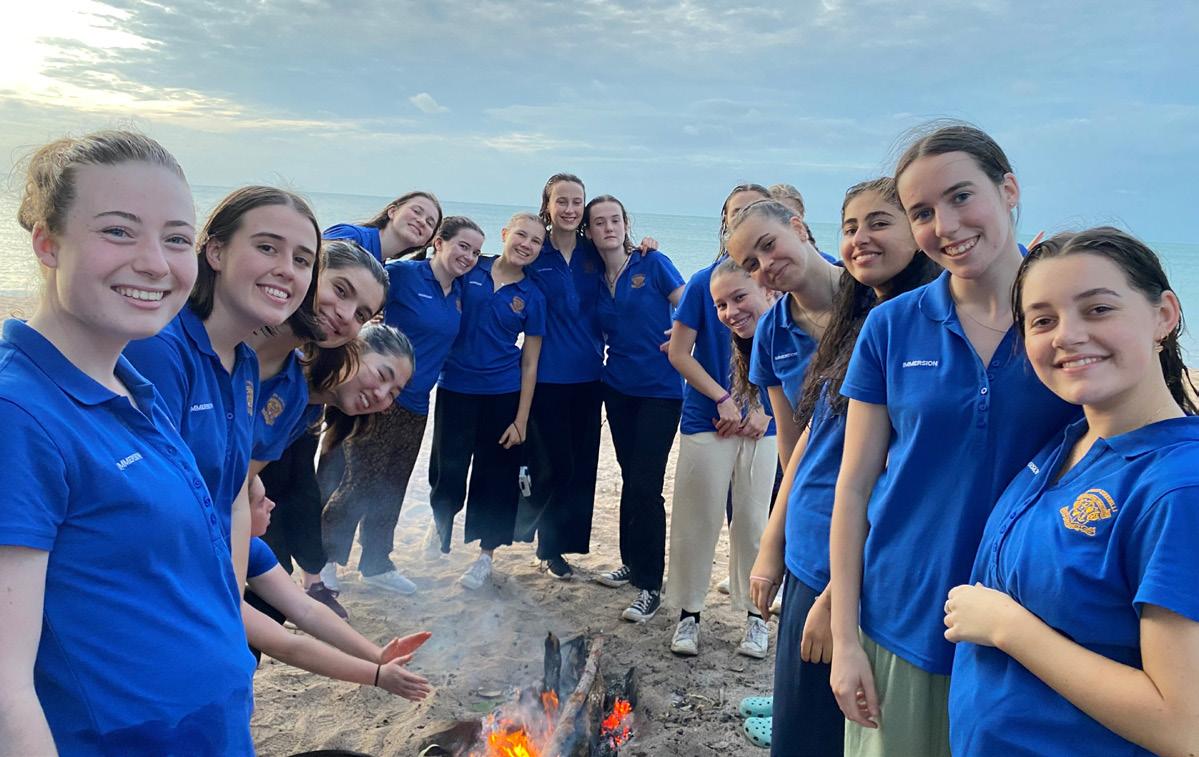
Stage 6 - Years 11 & 12
CHRISTIAN ENVIRONMENTAL ETHICS (HSC STUDIES OF RELIGION I & II)
Christian Environmental Ethics are an evolving area of Christian religious teaching. The subject highlights that God is the creator of all things, and that humans need to work in partnership, not only with God and the land but with each other, to ensure the fragile environment of the world today is nurtured and protected.
• Students engage with themes of Stewardship, Justice and Interconnectedness, examining sustainability, responsibility, partnership with God, respect, care and reverence and integrity of creation.
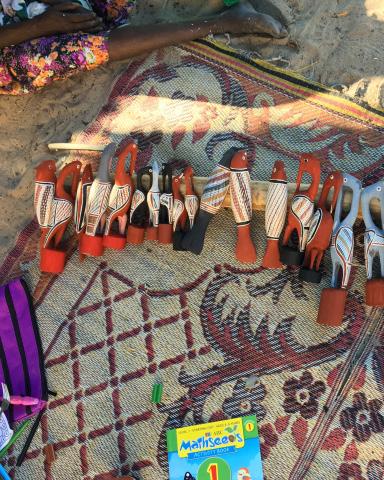
VERITY IMMERSION TO EAST ARNHEM LAND
Whilst some students will have travelled to varying parts of the world, including some developing countries, most will have had little experience of deeply engaging with First Nations people in remote Australia. As such, the objective of this Loreto Kirribilli designed immersion is to:
• Find God in all things and all things in God and further develop both staff and students’ personal relationship with God.
• Enrich all participants’ knowledge and understanding of the Gospel call to justice and its reflection in the social teachings of the Catholic Church.
• Develop relationships with Aboriginal people and an appreciation of the richness of First Nations culture.
• Develop ideas about how we can respond to the times.
• Challenge all participants to utilise the vast opportunities open to them.
• Open all participants’ minds to other ways of operating in Australia.
8
justice sincerity verity felicity freedom
L E ad ERSHIP ROLES
JUSTICE PEACE INTEGRITY OF CREATION AND DIVERSITY COUNCIL IN THE SENIOR SCHOOL AND LITURGY AND ENVIRONMENT LEADERS IN THE JUNIOR SCHOOL
One of Mary Ward’s most cited maxims, 'Be seekers of truth and doers of justice', articulates the call to action of the JPICD Council in the Senior School and Liturgy and Environment Leaders in the Junior School. Committed to being women of faith and action, the JPICD Council and Liturgy and Environment Leaders give due focus to those suffering injustices, marginalisation, disadvantage and/or impoverishment. While fundraising is beneficial to the communities or missions it supports, the primary imperative of the JPICD Council and Liturgy and Environment Leaders is to raise awareness and educate. The student leaders bring year groups together to work towards shared goals and equally give prominence to matters of social justice.
Aims
• Promote the dignity and liberation of all, particularly of women and children
• Challenge unjust systems and structures
• Stand with those on the edges of society
• Show reverent care for the earth and all creation
JUNIOR SCHOOL LITURGY LEADERS
Aims Demonstrates leadership skills - the ability to lead the Junior School students in Liturgy, prayer and in social justice initiatives
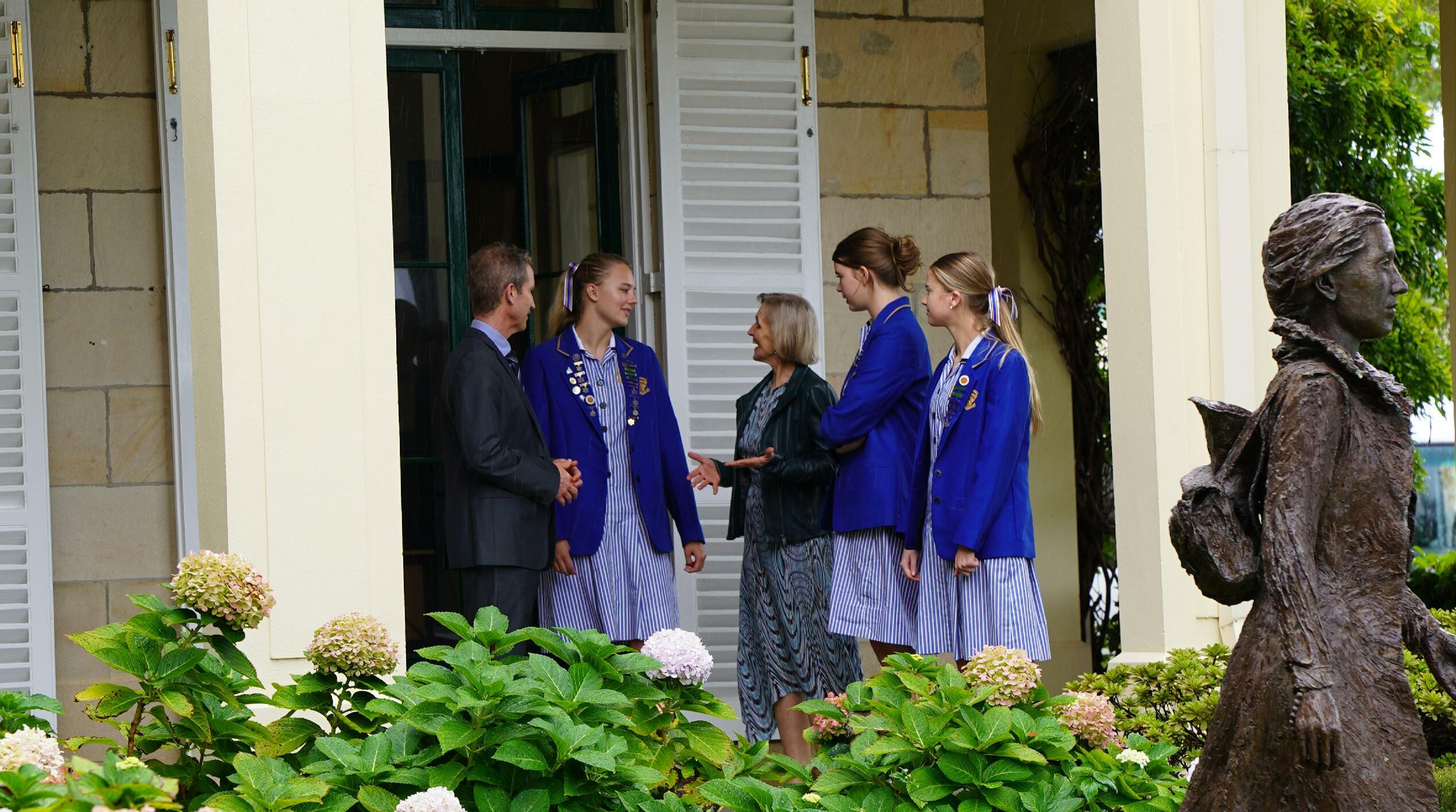
• Participates in all social justice events with enthusiasm
• Demonstrates consistency in modelling appropriate behaviour
• Demonstrates the ability to communicate well with teachers and students
justice sincerity verity felicity freedom
9
L E ad ERSHIP ROLES
JUNIOR SCHOOL ENVIRONMENT LEADERS
Aims
• Demonstrates leadership skills –the ability to lead the Junior School students in caring for our school environment and community
• Promotes interest in sustainability and environmental matters via school initiatives
• Demonstrates consistency in appropriate behaviour
• Is a positive role model to all students in the Junior School
• Demonstrates the ability to communicate well with teachers and students
SENIOR SCHOOL JPICD - SERVICE COUNCIL
As society experiences an increasing gulf between the affluent and the poor, and there exists a corresponding rise in the number of those people in need of assistance, our Catholic tradition dictates that we should ‘never see a need without doing something about it’ (Saint Mary of the Cross MacKillop). The school value of Justice would most saliently reflect the rationale of the council but it would also be supported by Verity - in that we are called to do what we do well.
Aims
• Create a visible example of social justice within the school community in conjunction with the JPICD
• Educate, inform and guide the school community towards helping the wider community
• Make a positive contribution to the wider community
• Establish a strong understanding and empathy for social justice
• Strengthen the commitment of Loreto Kirribilli to social justice
SENIOR SCHOOL JPICD HUMAN RIGHTS COUNCIL - FORMERLY KNOWN AS BENENSON SOCIETY
Through the Benenson Society, The JPICD Human Rights Council are involved in the promotion of human rights through the raising of awareness of violations of these rights and by lobbying governments on behalf of prisoners of conscience, for the end of torture and the death penalty, and asserting the rights of all to basic freedoms.
All work of the Society is based upon the foundation principle of the inherent and inviolable dignity of the human person. The Society believes that every human being has certain rights that cannot be, and must not be, compromised or separated from the individual.
Aims
• Promote human rights as enshrined in the Universal Declaration of Human Rights and in accord with other international human rights’ standards
• Deepen awareness of the struggle for human rights and to promote a wider awareness of human rights in their own communities
• Take a stand and make a difference, not only through gaining a greater awareness, but through action such as writing letters, petitions, use of social media, participating in campaigns with other organisations and other forms of appropriate peaceful protest
justice sincerity verity felicity freedom
10
10
L E ad ERSHIP ROLES
SENIOR SCHOOL JPICD - ENVIRONMENT COUNCIL
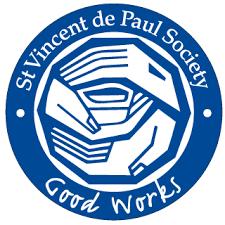

The Environmental Justice element of the JPICD Council is articulated as ‘Integrity of Creation’. In order to promote responsible and accountable stewardship of the planet, it is necessary to educate generation upon generation of the world’s citizens about how we can work together in harmony with each other and God’s creation. Topical matters of environmental justice are on constant rotation in the media. It is critical that we engage with the debate and model choices that make a statement about our position regarding the sacred nature of the world around us.
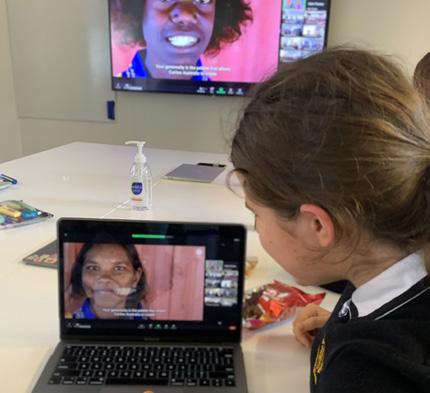
Aims

• Define environmental justice and make it accessible for all students
• Promote awareness about local and global environmental injustices
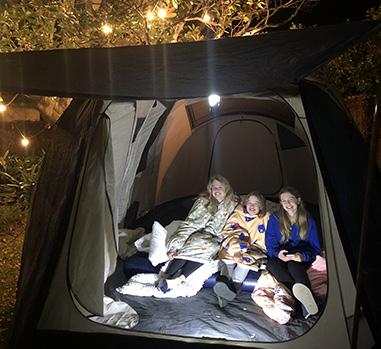
• Model sustainable environmental practices
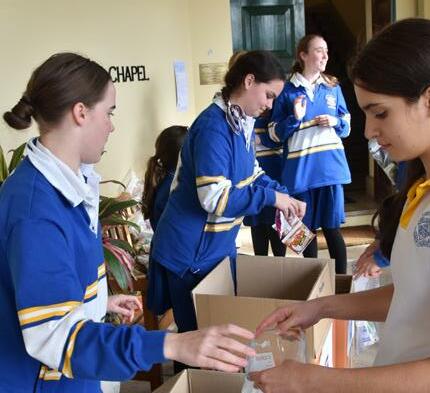

• Educate about the impact of lifestyle on our environmental footprint
• Identify the positive practices of the school community regarding sustainable living

• Identify the gaps in sustainable living and create initiatives to address these
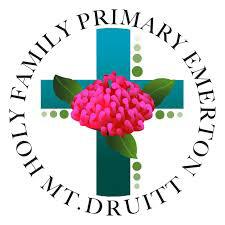
JPICD representatives in Year 7-11 support the rationale and aims of the 3 JPICD Councils.
ann U a L E v E n TS
Various drives where the need arises - for example, bush fires, floods, COVID-19 pandemic, overseas conflicts or incidents.
justice sincerity verity felicity freedom
11
the Season of Lent Caritas - Project Compassion
1
Stalls led by Years 6 and 10
International Australia TERM 2
During
TERM
May Day
Mary Ward
St Vincent de Paul Winter Appeal
TERM
3
Holy Family Emerton Christmas Hampers
TERM 4
Mary Ward Justice Lecture
Yearly commitments include:
• Meals on Wheels Crows Nest Easter Egg Drive
• St Canice's Community Pantry
• Mary Ward International Australia
• Vinnies Night Patrol Food Preparation Roster
• The Smith Family S2S Reading Program
• Project Compassion
• Ronald McDonald House
• St Vincent de Paul Winter Appeal
• Red Shield Appeal
• Holy Family Parish - Emerton Christmas Hampers
MARY WARD SERVICE RECOGNITION
Many Loreto Kirribilli students are involved or would like to be engaged in voluntary community service at their own initiative, beyond the programs organised by the school. Mary Ward Service Recognition provides students with the opportunity to be acknowledged for their selfless contribution to the community and being ‘seekers of truth and doers of justice’. This reflects on integral aspects of the philosophy of Loreto that, with Christ as our example, we respond in action to the message of the Gospels. Students can be challenged to break down barriers of fear and prejudice, reduce the impact of stereotypical images and bring a human face to those in our community. The results of which, are students with an increased awareness of injustice in the world who will actively seek to transform it.
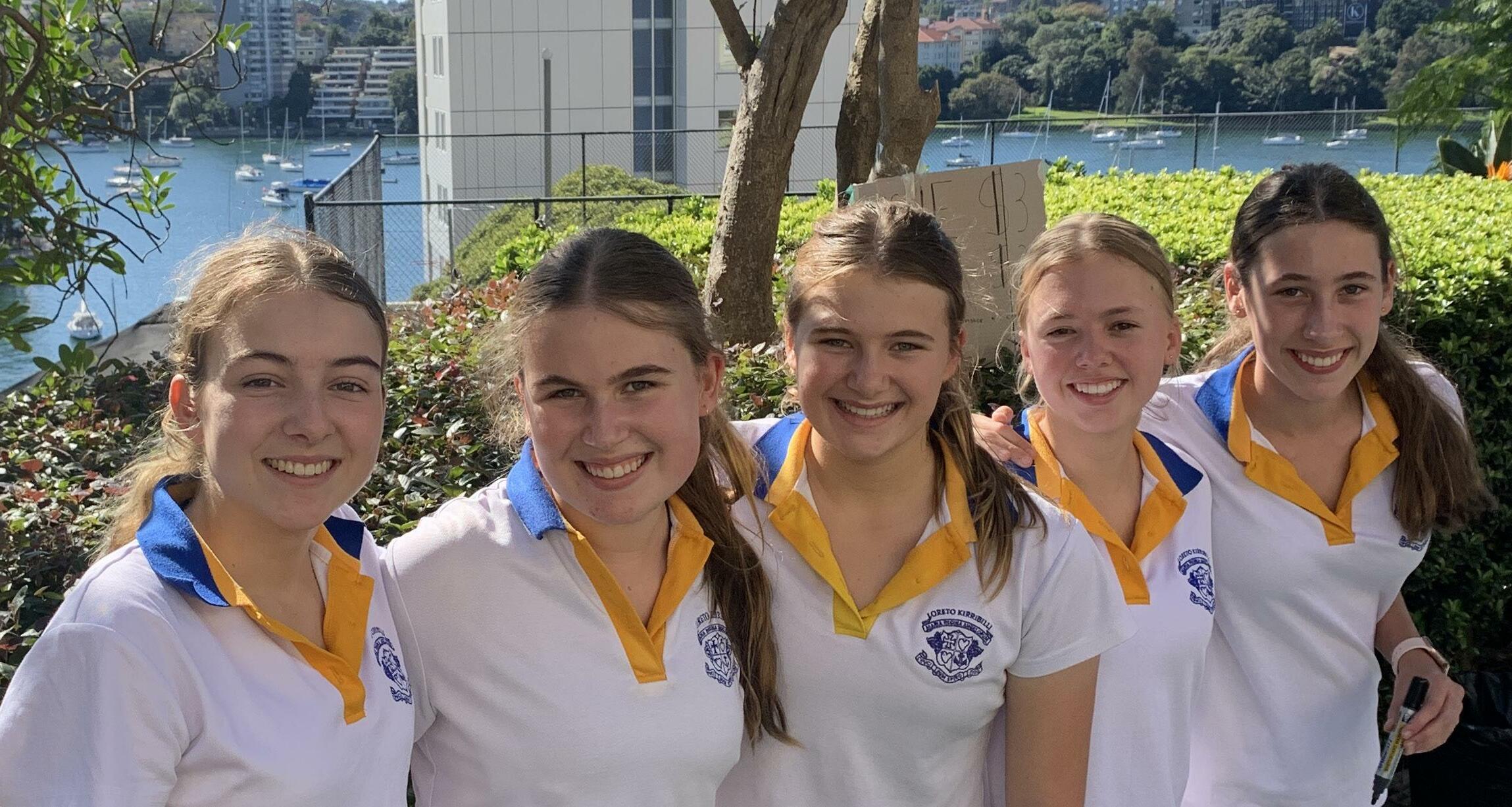
While it is a matter for families where the volunteering takes place, students in Years 7 and 8 may wish to focus on experiences of being ‘for others’ while the students in Year 9 - 12 should think about finding ways of being ‘with others'. As part of recognising their own initiative in contributing to outside of school community service, students will need to complete a minimum number of hours of voluntary community service at each stage, in order to receive a Mary Ward Service Certificate.
justice sincerity verity felicity freedom
12 y E a RLy CO mm IT m E n TS

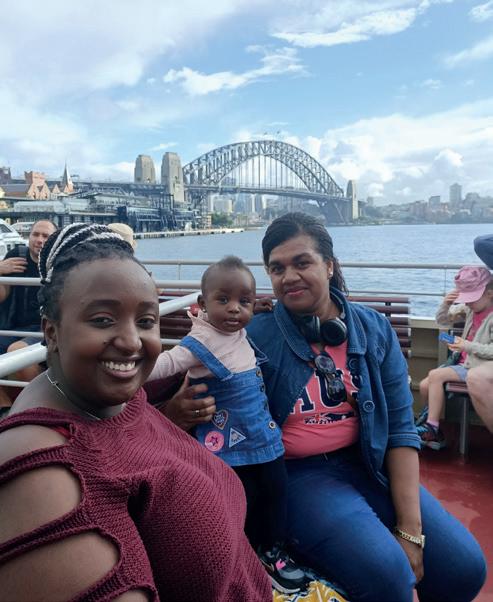
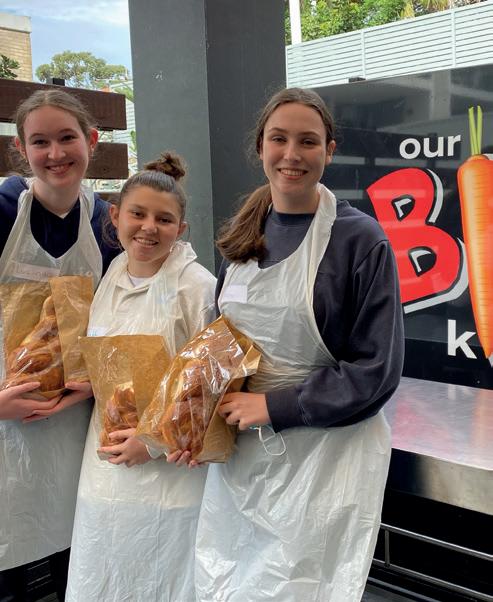
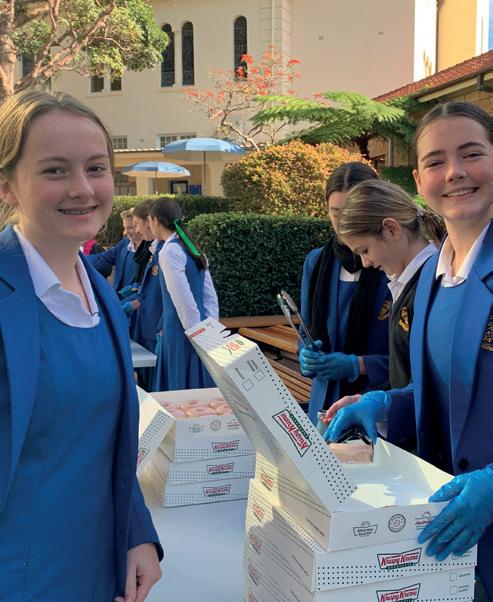
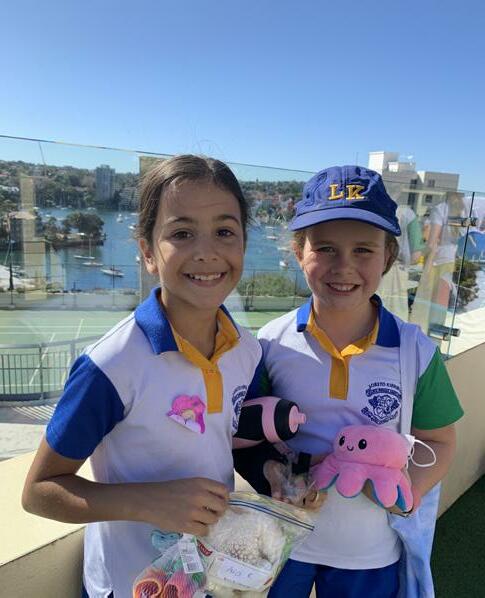

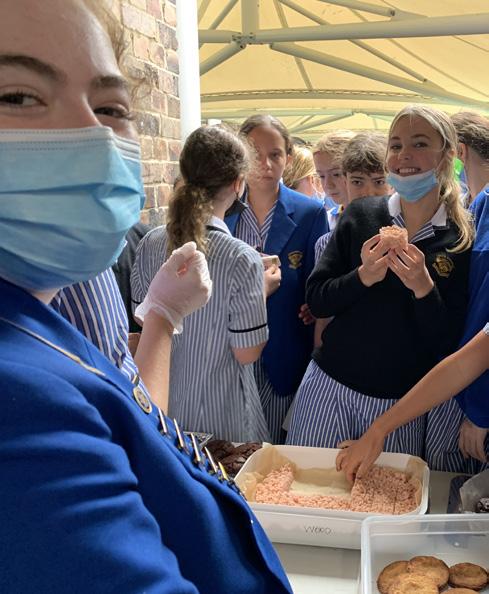
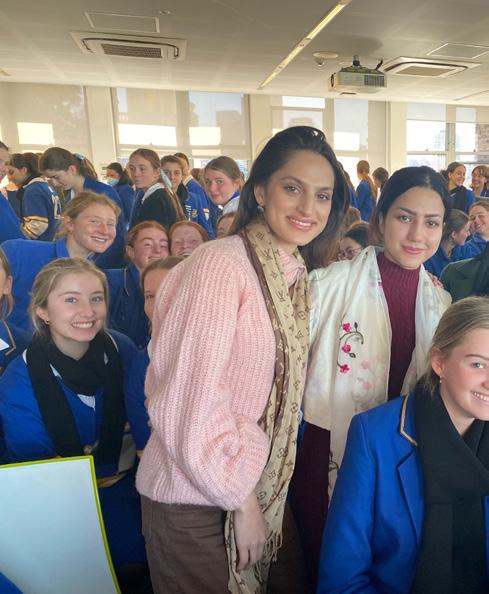
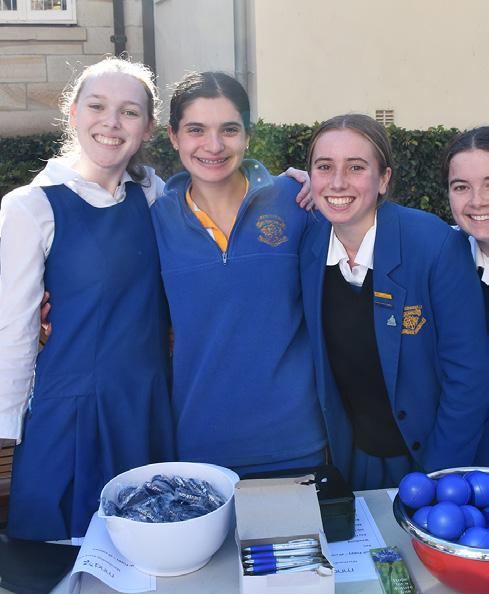
May Day Dress-Up Fundraiser House of Welcome Our Big Kitchen Donuts for Deforestation May Day Stall Fundraiser Year 9 Charism Reconciliation Day Caritas Cake Stall Live at Lunch Talk Escaping The Taliban Motor Neuron Disease Fundraiser highlights
highlights
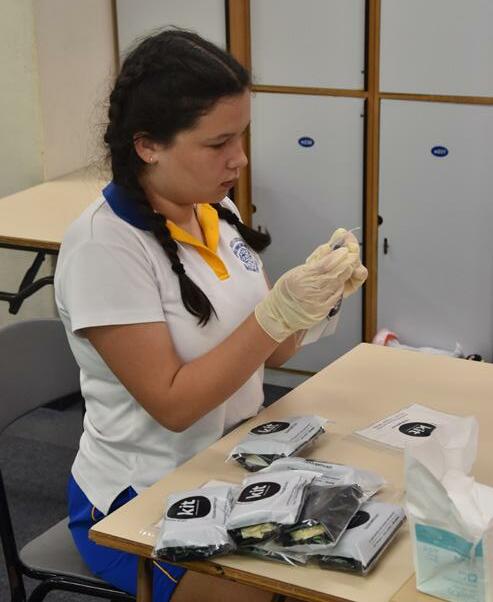
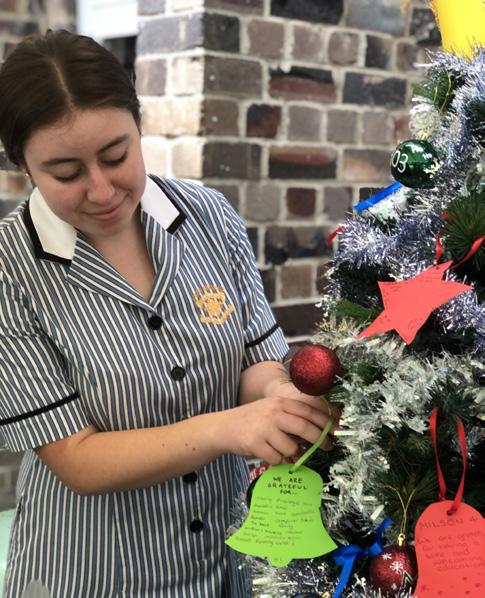
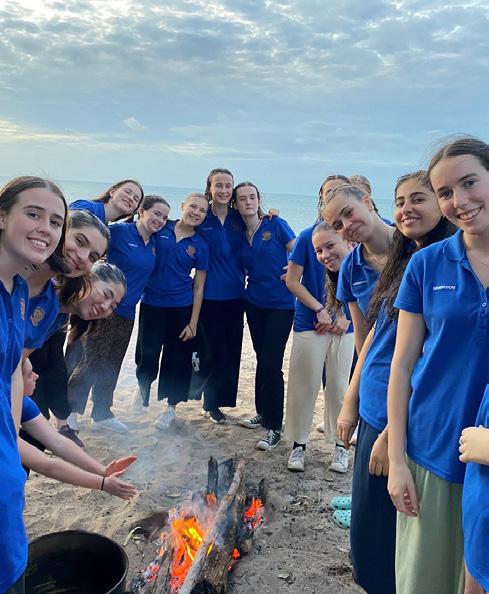
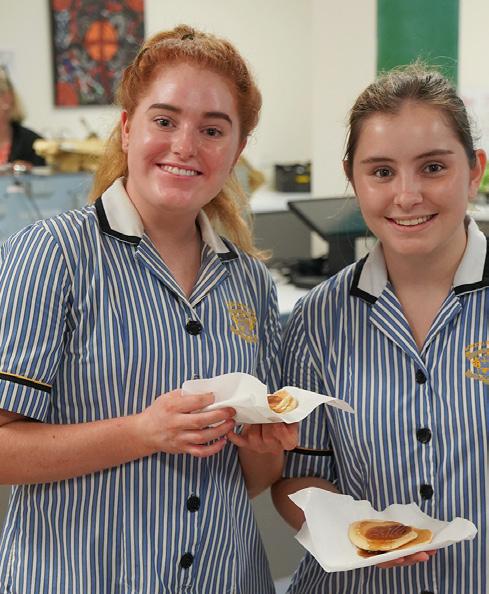
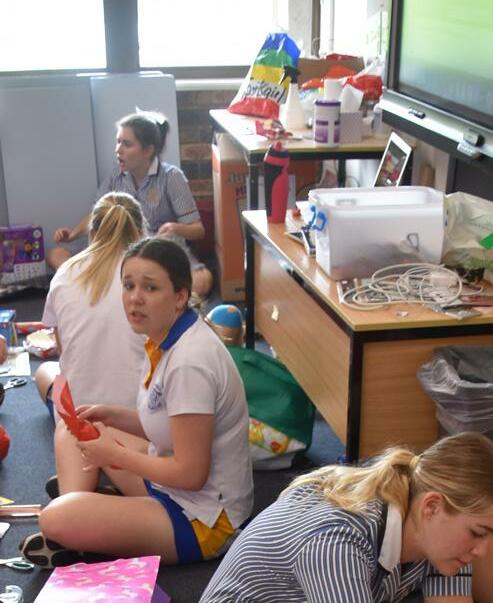
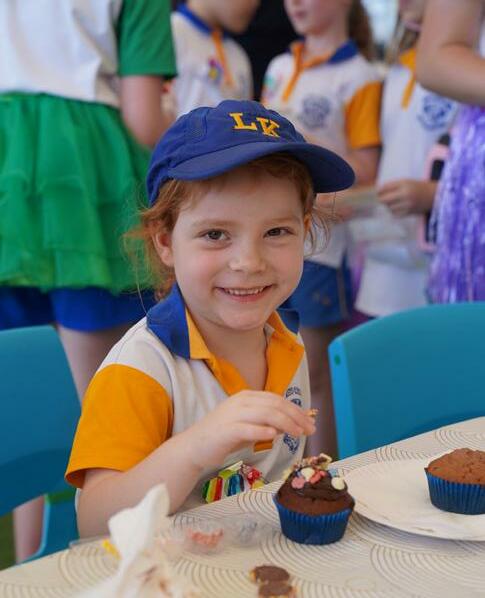
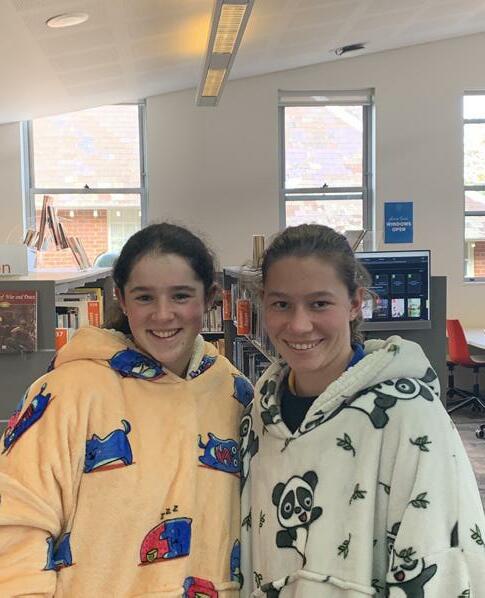
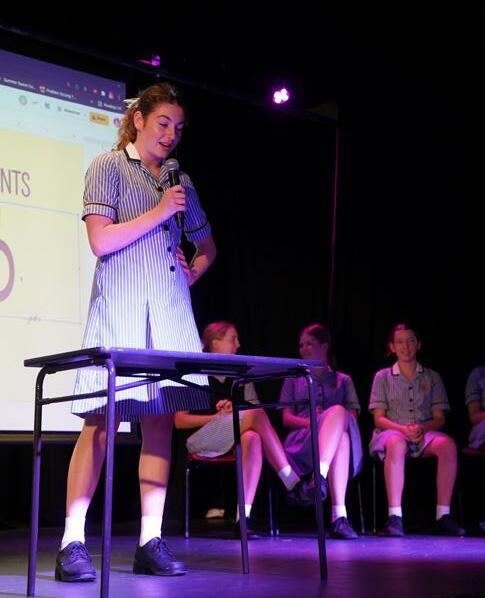
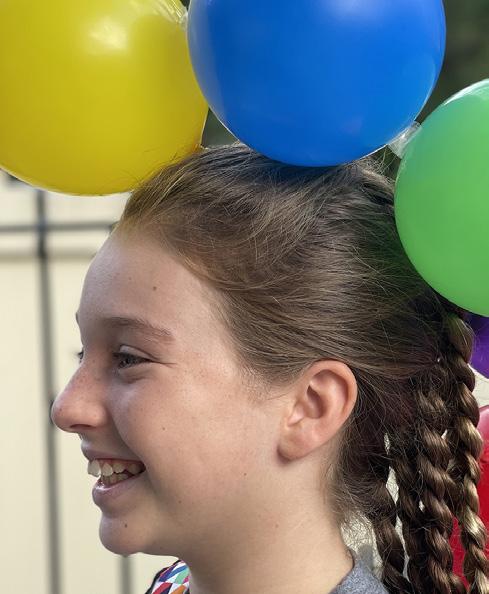 Hoodie Day
Junior School Spelling Bee Flood Fundraiser
Emmaus Service Ministry Christmas Hampers
Senior School Spelling Bee Flood Fundraiser
Crazy Hair Day
Veritree
Verity Immersion
Emmaus Service Ministry Birthing Kits
Shrove Tuesday
Hoodie Day
Junior School Spelling Bee Flood Fundraiser
Emmaus Service Ministry Christmas Hampers
Senior School Spelling Bee Flood Fundraiser
Crazy Hair Day
Veritree
Verity Immersion
Emmaus Service Ministry Birthing Kits
Shrove Tuesday
85 Carabella St Kirribilli NSW 2061 | Phone +61 2 9957 4722 loreto.nsw.edu.au 29.8.22









































































































 Hoodie Day
Junior School Spelling Bee Flood Fundraiser
Emmaus Service Ministry Christmas Hampers
Senior School Spelling Bee Flood Fundraiser
Crazy Hair Day
Veritree
Verity Immersion
Emmaus Service Ministry Birthing Kits
Shrove Tuesday
Hoodie Day
Junior School Spelling Bee Flood Fundraiser
Emmaus Service Ministry Christmas Hampers
Senior School Spelling Bee Flood Fundraiser
Crazy Hair Day
Veritree
Verity Immersion
Emmaus Service Ministry Birthing Kits
Shrove Tuesday